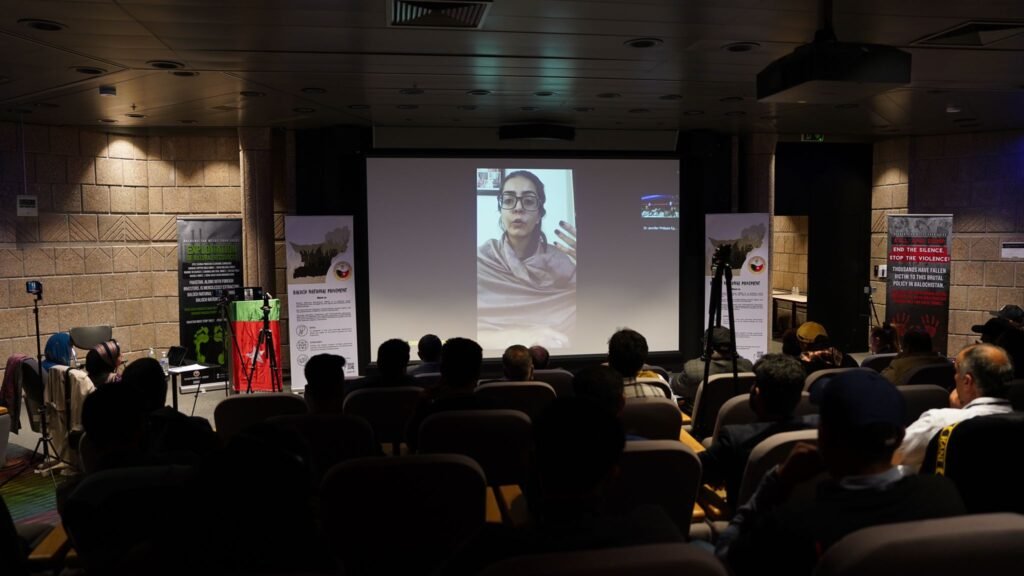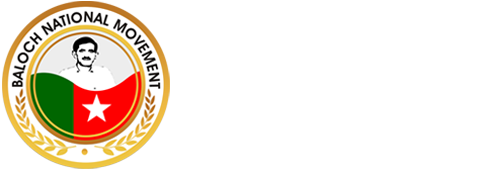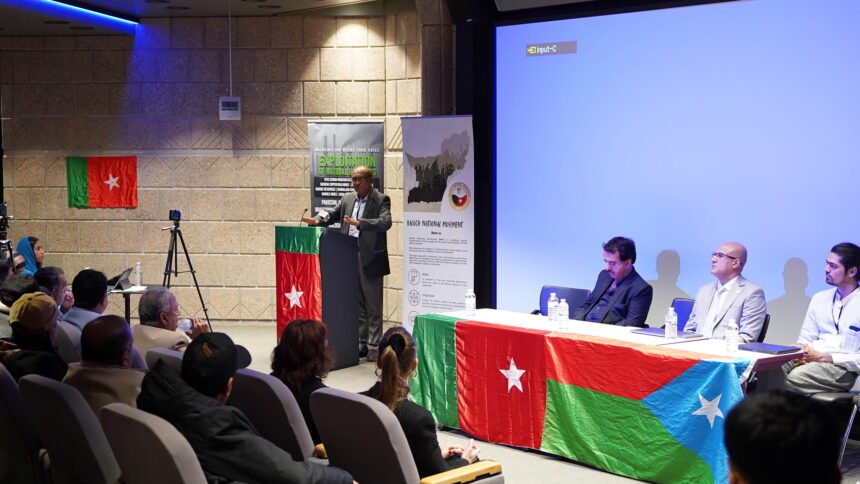Geneva : Balochistan is not merely a piece of land, but a graveyard of shattered hopes and lives where humanity is continuously violated. These sentiments were shared during the 5th Balochistan International Conference, organized by the Baloch National Movement (BNM).
The three-day activities, part of the ‘BNM September 2024 Geneva Events,’ is being held in Geneva from September 16 to September 18. BNM regularly organizes the ‘Balochistan International Conference’ to draw global attention and support for the Baloch cause. This fifth conference was included as a key feature of BNM’s Geneva activities. The event saw participation from a diverse range of individuals from various countries and BNM activists.
The central theme of the conference was to shed light on the human rights violations and exploitation of Balochistan by the China-Pakistan collaboration, bringing the issue to the United Nations platform. Additionally, Balochistan’s ongoing struggle for independence and the grave human rights situation in the region were core topics of discussion.
“Despite ongoing state oppression and violence, the Baloch nation continues to resist.”
The program was structured into three sessions. Speakers in the first session included Yusuf Baloch, a climate change activist; Jafar Mirza, a PhD candidate at King’s College London; Habibur Rehman, former spokesperson for the Jammu and Kashmir People’s National Party; Fazal ur Rehman Afridi, the Head of International Diplomacy and Foreign Affairs for the European Committee of the Pashtun Protection Movement (PTM); and Dr. Lakho Lohana, General Secretary of the World Sindhi Congress.

The speakers in this session highlighted the numerous challenges faced by Balochistan and Baloch Nation. Despite state repression and violence, the Baloch nation continues to resist and raise its voice for their rights. Balochistan refuses to remain silent in the face of oppression, and its struggle is gaining recognition both locally and internationally.While this is not the first emergence of the Baloch national movement—it marks the fifth—the current iteration is notably different from those of the past. Today’s movement is characterized by broader public participation and more diverse leadership. People of all genders and ages are actively involved, making the Baloch national movement truly inclusive and universal.
“The actual number of enforced disappearances far exceeds the figures acknowledged by the state.”
In the second part of the conference, speakers participated online, including Afrasiab Khattak, leader of the National Democratic Movement (NDM); British Labour Party MP John McDonnell; Nida Kirmani, Associate Professor of Sociology at Lahore University of Management Sciences.; prominent human rights lawyer Iman Mazari; and Dr. Jennifer Philippa Eggert, a human rights advocate.
The speakers emphasized that communication in Balochistan is severely restricted. The situation in Balochistan is rarely covered in Pakistan’s mainstream media, and much of the population lacks access to the internet, leaving them unaware of the true conditions in the region. One of the key issues is enforced disappearances, and Pakistan has no clear legislation addressing this crisis. Although some members of Pakistan’s Parliament attempted to introduce a legal draft on enforced disappearances, the draft itself mysteriously vanished.
They noted, “If the government claims that only 8,436 people are missing, we can safely assume the actual number is much higher, as the state shows no interest in holding its representatives accountable for these crimes.” The number reported only reflects cases where families were able to reach the Commission of Inquiry, while many others remain silent due to state pressure. Enforced disappearances are not limited to Balochistan; they are also occurring in Sindh, Punjab, and Pakistan-administered Kashmir. However, Balochistan and Pakhtunkhwa are the most severely affected regions.

“The state is restricting the freedom of our youth and labeling them as terrorists.”
In the third and final session, Dr. Naseem Baloch, Chairman of the Baloch National Movement (BNM); renowned historian Dr. Naseer Dashti; Italian journalist Francesca Marino; and human rights defender Anhelina spoke.
The speakers highlighted that the Baloch are facing a unique enemy. It is unique because in the history of national liberation struggles, Pakistan came out of blue and it is the only country or state who was supposed to be liberated from a mighty colonial power, the British Empire, but the ideology of Pakistan was created in the white heart in London, not from the lands that now constituted the Pakistani state. It is unique because the national language of this state is not the language of any person or any national entity in Pakistan and its national language was brought from North India.
The speakers also addressed the alarming inclusion of non-political activists in Balochistan on the Fourth Schedule. These activists, who peacefully mobilize people against resource exploitation and enforced disappearances, are being targeted because the state, like any military establishment, fears mass mobilization. By placing these activists on the Fourth Schedule, the state effectively labels them as terrorists—undeclared, unconvicted terrorists. Under this system, the state monitors their movements and can require them to report to the nearest police station weekly or monthly. This restricts the freedom of the youth while branding them as terrorists.
Shali Baloch and Iman Baloch moderated the conference, and in closing, Faheem Baloch, Coordinator of BNM’s Foreign Department, expressed his gratitude to the participants and speakers.


